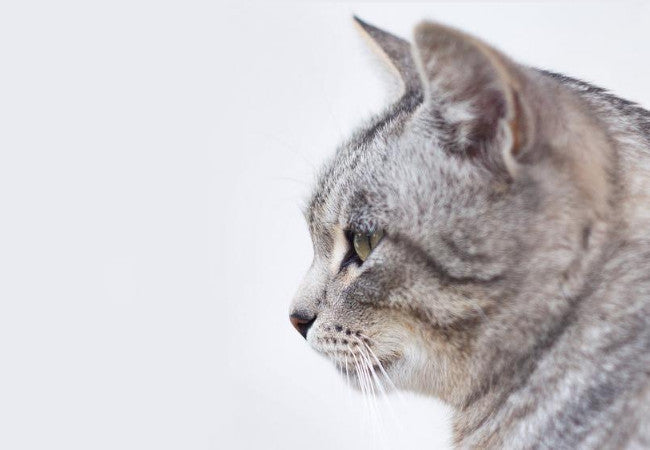Whilst your older cats might not show any visible signs of ageing, being more vigilant and providing them with proper care can go a long way towards making their golden years comfortable.
Read on to find out more about behavioural changes in older cats and how to best care for your senior cats:
- Less inclined to jump or climb
- Failing to use the litter box
- Appetite loss
- Lethargy
- Excessive (nighttime) vocalisation
Easy access
As your cats get older, they may start walking slower and avoid jumping and climbing and their mobility may become more limited. If your cats' food and water bowls sit up high, they may need to be lowered and if your cats struggle to use the litter box, consider using a shallower box with lower sides, so that it's easier on their older joints. ASPCA suggests increasing the number of litter boxes available to your cats. You can also help your cats reach their favourite high perches by providing a ramp or a stepping stool.
Warm place
A cosy, warm place helps soothe sore joints and muscles. It's also important that you make sure your cats feel as safe and secure as possible. Our Calming Pet Bed will do wonders!
Nutrition
Feed your cats a high-quality food that is specially designed for senior cats. Veterinarians first recommend you talk to your vet for advice on selecting foods that meet your senior cats' particular needs. You can help reduce the risk of arthritis and joint problems by feeding a cat food that contains omega-3 fatty acids. Feeding your cats small, frequent meals can also help improve their digestion. Measure your cats' daily food and split it into small portions.
As cats age, they are prone to kidney disease and constipation. Drinking plenty of water helps improve kidney function and prevent dehydration. Place multiple dishes of clean, fresh water in various locations and consider adding wet food to your cats' meals to provide a good source of water.
Grooming
Older cats groom themselves less effectively than do younger cats. Brushing your cats helps keep their coat healthy and of course helps you build an intimate bond with your cats. Dental diseases and infections can hinder eating and significantly affect your cats' overall health if they're not detected and treated. Be sure to take your cats to the vet for regular dental checkups and cleanings. You can also help prevent tooth problems by regularly brushing your cats' teeth.
Exercise
Exercise is important, not only for weight control but overall health as arthritis develops and muscles begin to atrophy. A pound or two of excess weight can put undue strain on joints, leading to pain. Encourage your cats to move and play as much as they are willing to, but don't push, especially if they show signs of discomfort or joint pain. Increasing your cats' activity during the day helps reestablish their proper sleep-wake cycle and treat increased vocalisation.
"As pets get older, they get more anxious. You can spritz it [pheromone] around their bedding and stuff. It's like giving them two glasses of wine after coming home from work. It really relaxes them." Dr. Becker told Basepaws, suggesting the use of pheromone treatments. He also advises to heat your cats' food up to release the aromas if they are losing appetite.

